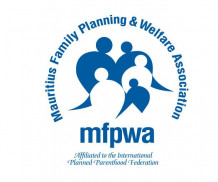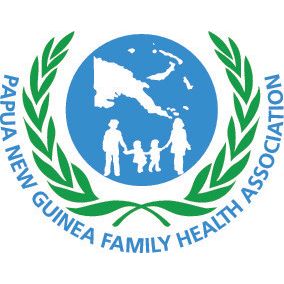

| 31 March 2016
Mauritius Family Planning & Welfare Association
Established in 1957 as a grass-root movement, the Mauritius Family Planning & Welfare Association (MFPWA) was one of the earliest organizations in Africa focusing on family planning issues. As the nation struggled to find a way to address pressing population issues, a group of advocates formed MFPWA and started to provide contraceptive services directly to women. In 2018 the MFPWA is governed by an Act of Parliament 2018 as a body corporate. Today, the organization caters for the sexual and reproductive health (SRH) needs of the whole community. It also has particular strands of activity relating to specific groups including sexually abused children, elderly people, men and marginalized populations on Rodrigues and Agalega Islands. MFPWA has 30 staff and 50 volunteers and offers services through 2 permanent facilities and several service points. It also runs a day care centre for infants and children as a social enterprise initiative. The Association delivers services that include family planning, the prevention and management of HIV through voluntary counselling and testing, infertility management, antenatal and post-natal care, post-abortion care, the diagnosis and treatment of sexually transmitted infections (STIs) and screening for cancers of the reproductive systems in particular breast, cervical and prostate. The Association began its first rehabilitation of sexually abused children in 2003 and has built a solid reputation in the domain. Services for the rehabilitation of victims of gender based violence had been extended to Rodrigues Island on a pilot basis in 2019. The Member Association also operates peer-educator-led outreach programmes targeting work places, namely: hotels, manufacturing industries, call centres, male-dominated sectors such as transport, police, agriculture and fisheries. MFPWA has played a critical role in promoting the integration of comprehensive sexuality education into the national school curriculum and its powerful, informed advocacy has been influential in shaping government’s agenda and policies on SRH and population issues. MFPWA partners with and advises government departments which address health, quality of life, women’s rights, child development, family welfare, social security and youth and sports. MFPWA works with a large number of non-governmental organizations (NGOs), para-statal and government institutions and international partners like UNFPA, Help Age International and the European Union.

| 09 December 2020
Papua New Guinea Family Health Association
The Papua New Guinea Family Health Association (PNGFHA) was established in 1981 and registered in the same year under Section 7 of the Associations Incorporation Act, Papua New Guinea. PNGFHA became an IPPF Collaborative Partner in 2001 and then an Associate Member, approved at the December 2020 Board of Trustees meeting. The Association's Head Office was originally based in Lae, Morobe, but was relocated to the capital Port Moresby, in 2015. PNGFHA currently operates across 8 static clinics in Port Moresby (3), Lae, Markham and Bulolo (Morobe Province), Goroka (Eastern Highlands Province), and Kokopo (East New Britain Province), and are operated from facilities provided either by the Provincial Health or the district authorities. PNGFHA has a staff of 25, both clinical and non-clinical, and is supported by an extensive network of volunteers. Each clinic has regular outreach services to remote populations, providing safe and confidential SRH services and raising awareness. In 2021, PNGFHA delivered 220,038 SRH services to 53,497 clients, more than 90 per cent of whom were poor/ vulnerable. The clinics provide a wide range of SRH services including STI and HIV awareness, family planning, responding to cases of gender-based violence, and counselling. Legal services for survivors of sexual and gender-based violence (SGBV) are also provided due to need. Other programs include the youth/adolescence comprehensive sexuality education with out-of-school and in-school youths. Various outreach programs such as mobile clinics and awareness have also been implemented in partnership with local Provincial Health authorities. Currently PNGFHA have 3 furnished operational youth centres and youth clinic which provide support for the youth volunteer network, community outreach, CSE both in and out of school. Youth friendly spaces offer youth the opportunity to access information, receive counselling and a friendly safe space where young people can meet and share ideas. The youth friendly clinic provides access to quality and relevant youth centred SRH services and referrals, in the case of SGBV, by staff that are sensitive and trained to dealing with young people. Outreach involves activities mostly identified by the young people themselves, ranging from awareness in a school settings and communities, during a community event, community and government organised activities such as cultural shows and sports events. Through outreach events, trained youths are able to reach out to their peers and motivate them to access more information and services.







